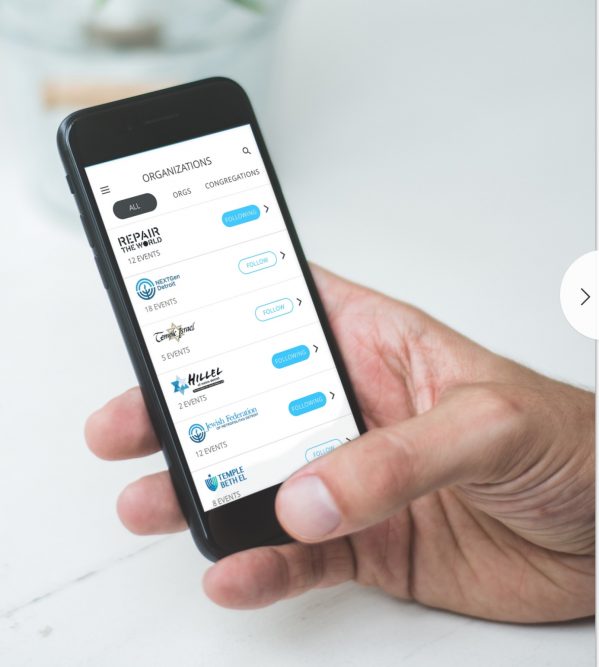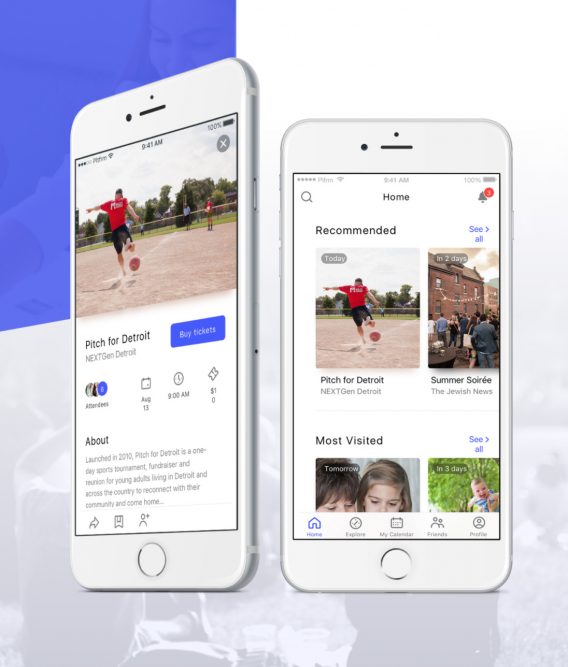On May 20th, 1948, over twenty thousand Jews spontaneously gathered on the field at Central High School in Detroit to celebrate the establishment of the State of Israel. The event was organized without formal invitations or advertising. There were no emails sent, no tweets or Facebook posts, no Whatsapp message chains.
How did nearly a quarter of the city’s entire Jewish population learn about this historic community event without these essential information channels? The answer is simple: We had great wiring.
Communities are maintained by the strength of their human connections—their wiring—whether it is physical, psychosocial or technological. That may manifest as a close knit suburban neighborhood, an active online user group or simply two pen pals connecting through the mail. Strong wiring allows communities to flourish and grow. As the wiring atrophies or breaks over time, the communities themselves fall apart.
It is unlikely that any event, even one as galvanizing as the formation of Israel, would lead to a spontaneous gathering like the one we had in 1948—not without considerable organization and promotion. We’re simply not wired for it anymore.
The breakdown in wiring is one of the central causes of the changes and deterioration of Jewish communal life in our time.
Jewish Detroit: Old Wiring in a New Age
In 1948, the majority of the Jewish population lived close to Twelfth Street and Dexter Avenue, an area representing just a few square miles. Jewish homes, businesses, congregations and organizations were clustered together within walking distance. Beyond this, Jews were largely excluded from non-Jewish communal organizations and activities. You went to the JCC not only because it was close, but also because there were no other options; you participated in Jewish social, professional and charitable organizations because that’s where you were welcome. With this powerful physical and cultural connection, information flowed quickly and effortlessly through the entire community.
Three quarters of a century later, Jewish Detroit is spread out across hundreds of square miles, from the city center—where many young people are now living—to the far reaches of suburbia. There is no physical center to the community, only a diverse and shifting collection of neighborhoods that have attracted Jewish individuals and families, often based on criteria such as affluence, cultural interests and religious observance. Jews are also widely integrated into the mainstream culture, and have a place in whatever social, professional or cultural niche that interests them. Why exercise at the JCC when there are dozens of specialized health and fitness alternatives? And why support Jewish charities when there are hundreds of others who will welcome your leadership and funding?
Perhaps the most damaging blow to the traditional connections that once held Jewish community in place is the rise of the consumer-driven ‘Attention Economy.’ The computer, the Internet and—most recently—the adoption of mobile technology have dramatically altered the focus of our attention. The people we listen to, the stories we follow and the goods and services we purchase are increasingly limited to those that have been curated and served up on the apps and content aggregators we access through our smart phones and tablets. The businesses and organizations that control those channels have an enormous advantage over those that are ‘off the grid.’ Goodbye Blockbuster and Borders, newspapers and neighborhood travel agents; hello Netflix, Amazon, Yelp, Expedia, Open Table, MindBody, Uber, Fandango…
The Detroit Jewish community, like so many others around the world, continues to generate exceptional content and experiences. Our organizations offer innovative and enthralling programs and events, opportunities to learn, grow, find meaning and have fun. We also provide a range of excellent services and programs for those in need, whether it be an isolated senior with declining mobility, a single mother with mounting bills or a teenager struggling with crippling anxiety. Today’s Jewish community is remarkably generous and dynamic. And yet… We have a problem.
Our organizations are finding it increasingly difficult to reach their audiences and stay present in their lives. As individual consumers, we have little more than our fading print publications, overflowing email inboxes and crowded social media feeds to stay connected to Jewish life. If we want to find a spin class on Sunday at noon in our neighborhood or a vegan restaurant downtown, we can do so with three swipes of an app. But if we want to find activities for Jewish families this month or social events for young singles, we may need to summon the time and energy to undergo a major research project.
Attacking the Problem
In Detroit, we see this as an existential problem. Unless we reconnect our community members to Jewish life—rewiring the community to allow a flow of content and connection—we will continue to see an erosion in the engagement of our people and a corresponding decline in the health of our organizations. It’s a daunting challenge that requires an inventive and urgent response.
We have begun to attack this problem using two core design principles: The first is an obsessive focus on the individual user experience; the goal of every solution must primarily be to make this experience easier, better and faster. It’s what they’re used to, and what they expect. Secondly, we must operate within a truly collaborative model that serves and includes the full range of organizations in our community. This can’t be just lip service.
We must seek real participation from everyone in the tent.
Out of these basic principles, we’ve developed a parallel set of solutions to rewire our community, providing a new conduit between individuals and the Jewish organizations that can serve their needs and interests.
JHELP (jhelp.org) is an online portal that focuses on social services and individuals in need, connecting users to the full breadth of services our community has to offer. This platform removes the burden on the individual to understand the distinction between a JFS, a JSL, a JVS or any of the other alphabet soup of agencies, all of whom stand ready to offer coordinated and integrated services to their customers. If you need assistance, just visit JHELP, where you can chat, schedule a call or immediately connect with our resource center. JHELP was launched in Detroit at the start of the year.

JLIFE—a product that is still in development—is a digital platform and mobile app that connects users to virtually all aspects of Jewish life and learning in our community. More than just a broadcast and discovery tool, JLIFE is envisioned to be the registration and data platform behind the vast majority of our community’s organizations, and will make it orders-of-magnitude easier for individuals to learn about and register for the Jewish content that fits their interests. We are developing JLIFE in close collaboration with Jewish organizations, schools and congregations throughout our city, all of which struggle to reach and stay connected with their audience.

These initiatives represent new approaches to our longstanding mission of taking care of the needs of the Jewish people (JHELP) and building a vibrant Jewish future in metro Detroit and beyond (JLIFE). While we are at the beginning of these efforts, the reaction in our community has been extraordinary. Two particular constituencies have emerged to champion them. One is the leadership of our organizations, who recognize that their competition is not each other, but the myriad other brands and activities available to their customers. The other champions come from our cadre of young adults, especially those working or invested in technology. The overwhelming response of these young people is simple and bracing: If we’re going to continue to have a Jewish community, we have to do this.
We invite organizations everywhere to connect with us to learn more, offer feedback or share their experiences. We know the wiring of the Jewish community runs far beyond our own city, to other communities and nations around the world. Our hope is to help strengthen these connections everywhere.
To connect and learn more about these initiatives, contact us at jlife@jfmd.org
Ted Cohen is the the Chief Marketing Officer of the Jewish Federation of Metropolitan Detroit
Scott Kaufman is the Chief Executive Officer of the Jewish Federation of Metropolitan Detroit




